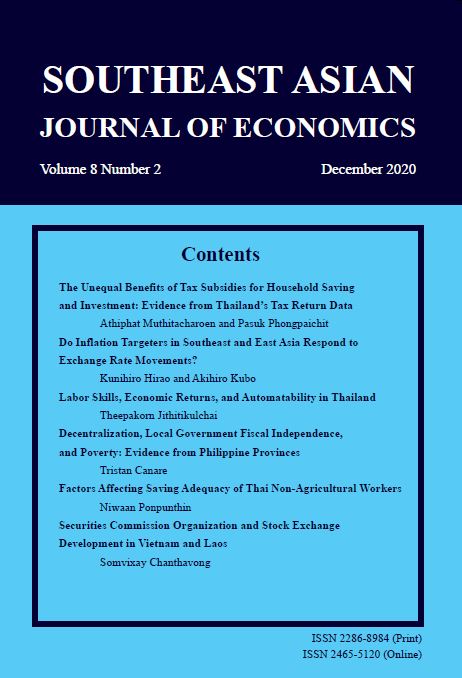Labor Skills, Economic Returns, and Automatability in Thailand
Keywords:
labor skills, return to skills, automatability, computerizationAbstract
This study analyzes skill content from the occupational structure of the Thai economy. The measurements of skill inputs show that provincial GDP per capita increased with non-routine cognitive analytical skills, non-routine interpersonal skills, and routine cognitive skills in a monotonic way, while economic value has an inverse relationship with routine manual physical skills. Trends in skill content and intensities in aggregate production demonstrate that progress has slowed over the last decade. Regression analysis reveals that occupational skill content could be a useful predictor of hourly earnings, especially for non-routine cognitive analytical skills. Lastly, risks of automation are more likely to be harmful to low-income, low-skill workers who are at risk of job replacement by artificial intelligence and robots.
Downloads
Published
How to Cite
Issue
Section
License
The submission of a manuscript implies that the paper is an original work and has not been published elsewhere. The author(s) authorize the journal to reproduce or distribute the paper in printed or other electronic forms.







